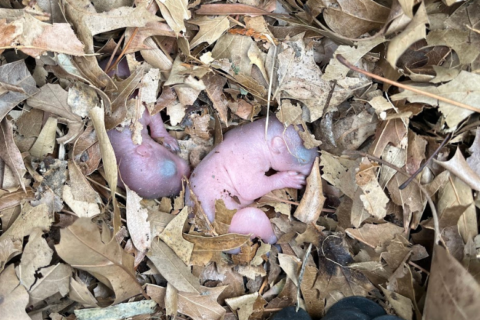A healthy Shih Tzu named Emma was euthanized after a Virginia woman included in her will that she wanted to be buried with her beloved pet.
Is it legal for a pet owner to determine a healthy four-legged friend should be put to death, when the owner is no longer around to care of the pet?
“It’s not illegal — I don’t know if it’ll stay that way for long,” said Jason Smolen, an estate planning attorney with SmolenPlevy in Vienna, Virginia.
“In Virginia, as elsewhere, animals are considered property, so you can dispose of them essentially as you wish, as long as it doesn’t violate any other laws.”
And that includes euthanizing a healthy animal to fulfill the late owner’s wishes.
“There are laws regarding cruelty to animals, but apparently this does not fit into it,” Smolen said. “I’ve not run into this particular situation before, but it does not seem like it’s illegal to do so.”
In this case, Emma was placed in the temporary custody of Chesterfield County Animal Services in March, following the death of her owner.
The manager of the shelter told WWBT in Richmond they tried to convince the executor of the will to allow them to find a new home for dog, but the executor followed the owner’s wishes and brought Emma to be euthanized.
Smolen says when it comes to the pet owner’s wishes, and the decision to follow her wishes, legal does not equal moral.
“I find it quite shocking that an executor or administrator of an estate would actually carry out these instructions,” said Smolen. “It just seems very cruel and harsh.”
It’s unclear whether the dog’s ashes were buried with the owner, since Virginia law does not allow animal ashes to be buried in a human’s casket in a commercial cemetery. Such burials are not precluded on private property.
Smolen says pet owners should ask themselves a question: “What happens when I’m not here anymore?”
“Parents do that with children, and you can analogize certain pets to children in certain families,” Smolen said. “To some families, all they have are pets — they don’t have children.”
When it comes to choosing who will care for a pet after its owner’s death, Smolen said a good place to start is if there is a family member or friend who is familiar with, and likes the pet.
“That’s probably the most common way it’s handled — informally,” said Smolen. However, some pet owners don’t have a trusted person in mind to care for their pet when they die.
Smolen said in Virginia, Maryland, and the District of Columbia pet owners can establish a trust, either as part of their will or a revocable living trust: “To absolutely establish funds set aside for the care of the animal, and set up the basic rules, regulations, and guidance of how you’d like those pets taken care of.”








